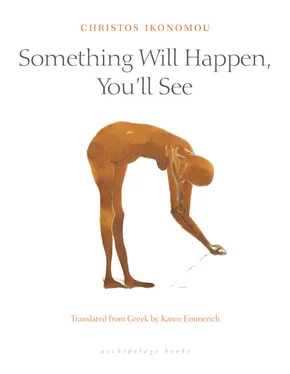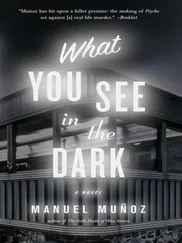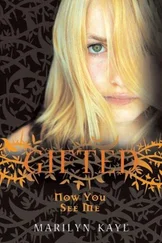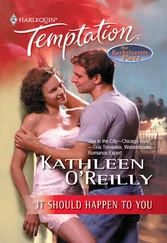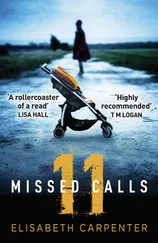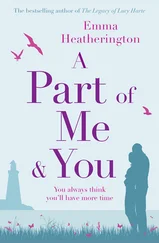In June he had killed a lizard. Sunday afternoon, a heat wave, he’d been sitting in the garden drinking just like now. He’d been picking up pebbles and tossing them at the lizards that had come out to sun themselves on the stone wall. He was throwing little pebbles at the salamanders for no real reason, just to pass the time. He wasn’t thinking about what he was doing. He wasn’t thinking about the pebbles or the lizards. He was daydreaming. He dreamed that they’d made lots of money and quit their jobs and bought this house and a brand new motorboat with a pointed prow and strong engine and they spent whole days out at sea — they rode around in the boat and fished and went to neighboring islands and swam and in the evenings as the sky grew dark they lay down in the prow and ate huge cold bowls of fruit salad — watermelon honeydew banana pineapple — and licked the salt tang off each other’s bodies and lay arm in arm watching the red sun fading out in the distance and the little lights flickering on along the shorelines of the islands and on the ships further out at sea — lay watching the stars appearing in the sky and there were so many of them and they were so far away that when he and she lay silently staring at those stars they felt a kind of pain inside. That was the kind of dream he was dreaming, dreams of a summer afternoon. And then without even realizing what he was doing he picked a bigger pebble up off the ground and threw it at the wall and the rock hit a lizard and killed it on the spot. He jumped to his feet, ran over, looked. A tiny green lizard with a long tail, identical to all the others. Motionless on the thick stone of the wall, a red spot between its eyes where the rock had landed. He poked it with a stick, blew on it, talked to it. Nothing. Just like that, quickly and simply, he had killed a lizard.
He looked around. There was no one there, nothing had changed, everything was the same as before, just as it always was, the trees the low wall the grass the flowers the house and inside the house Niki reading or sleeping and behind the house in the distance the sea the boats the ships the trash in the water the islands the people the world. Nothing had changed.
Quickly and simply.
As quickly and simply as god surely kills people all the time, tossing absentminded pebbles at the world, dreaming his own dreams.
• • •
They gave me a card at the bank, he said.
He put his sunglasses back on and looked at the hourglass over the water. It had shrunk by half and didn’t look anything like an hourglass anymore.
Six thousand with no annual fees. So, I’ll buy you a boat, he said. Nothing fancy but it’ll do the job. We’ll be fine making the payments. I’m not that useless, I can pay off a credit card. How does that sound? I’ll find a place where we can leave it and in the summer when we come back here we’ll have a new boat waiting for us. I’ll start playing the lotto, too. I’m sure they have stuff like that up there, there’s no place that doesn’t have lotto. You’ll see. I can’t buy back all the years that have passed but I can buy you a piece of tomorrow. You’ll see. It’s enough if we’re together and happy. Love and faith bring luck. You’ll see.
She opened her eyes and looked at him sideways, then looked at his glass and at the bottle sitting by his feet. She laughed.
What did you say?
Nothing.
What’d you say?
Nothing.
But you said something.
• • •
At night the locals came and took stones from the wall around the property. They turned off the coast road climbed up the hill on the dirt road and stopped in front of the fence with their headlights trained on the fence so they could see what they were doing. They came with pickup trucks and brought tools to loosen the stones and casually loaded them onto the beds of their trucks, slow and easy, taking their time. They were beautiful stones, big solid hand-chiseled slabs, they made you happy to look at and touch. The first night the locals came he yelled at them. Get lost, you buzzards, he shouted. You buzzards, you crows, aren’t you ashamed? There are still people living here, get lost. Buzzards. Get out of here. He shouted and cursed and at one point it almost came to blows. But eventually he got tired of shouting and cursing and fighting. What was the point? What difference did it make, today or tomorrow. What was the point. A soul that’s ready to leave will leave.
No use wasting our energy, he said to Niki. It’s a tactical move, see.
• • •
An idiot mayor, Niki said. You’re talking like an idiot mayor. That’s what I said. Like a priest and a mayor rolled up in one. Love brings luck, huh? Okay, Father, whatever you say. Pour me another martini.
She held the bottle between her bare thighs opened it tilted her glass and filled it up to the rim then looked over his head at the cloud of dust rising from the far side of the mountain. Eminent domain. Day and night the workers and machines kept at it, gutting the mountain, opening a new road toward the port. Lately at night when they sat under the olive tree they thought they could still hear the echo of the hum of the machines thought they could see red dust falling onto the trees, onto the fence, onto their faces and hair. And when they drank or ate they thought they could feel dust in their food and drinks thought they felt dust in their mouths and throats. Dust. They ate dust drank dust coughed dust sweated dust.
Eminent domain.
Lately at night they’d been dreaming. Dreams of Kyustendil — if you could call them dreams. Confused, anxious, unfair dreams. The kind where you keep trying to do something, you struggle for what seems like hours to achieve something important, something beautiful, something that in your dream you know will change your life forever, but in the end you fail. That was the kind of dream they’d been dreaming, unfair dreams. And they woke in terror, bathed in sweat, thinking they could hear the other person’s heart beating even louder than their own.
There were lots of times when he woke up screaming, and Niki would lean over and stroke his forehead his cheeks his chest.
Don’t be scared, she’d say. I’m here. Don’t be scared.
They would lie awake for a long time silently listening to the sounds of the night which was up as late as they were. The crickets and the cicadas. The rustle of the leaves and the sighing sea and all the sounds that frighten a person at night. The creaking of roofbeams, the hum of the fridge, a dripping faucet, something creeping along the floor or wall. Silently they listened to the night speaking around them and their skin crawled.
When day broke, much later, he said to her:
That’s what love is. To have the same dream at the same time on the same night with the person who’s sleeping beside you. Who’d believe it if you told them? The two of us are alone in the world. Even in sleep we’re in love.
She looked at him in the dark, then turned over so she wouldn’t have to see him anymore.
They’re not dreams, they’re nightmares, she wanted to say, but in the end she didn’t.
• • •
The ice cubes had melted. He went to get some water from the fridge. Bottled water, a euro and sixty cents per six-pack. Fifty euros a month. Six hundred euros a year. For months now they hadn’t been drinking water from the tap because it came out looking like rust. In the hall the plastic bottle slipped from his hand. His hands were shaking again. He walked past the old mattress leaning against the wall and went out and sat down on the cement.
I say we pull the mattress out here and sleep in the yard tonight, he said. It’s our last night here, we should sleep in the yard. What do you say?
Niki shrugged.
Do whatever you want, she said. I won’t be sleeping at all.
Читать дальше
